A New Class of Fellows and a Transformational Grant in Paris
The Institute for Ideas and Imagination is welcoming a new cohort of fellows and announcing a $7.5 million grant from the Stavros Niarchos Foundation (SNF) to solidify and expand operations.
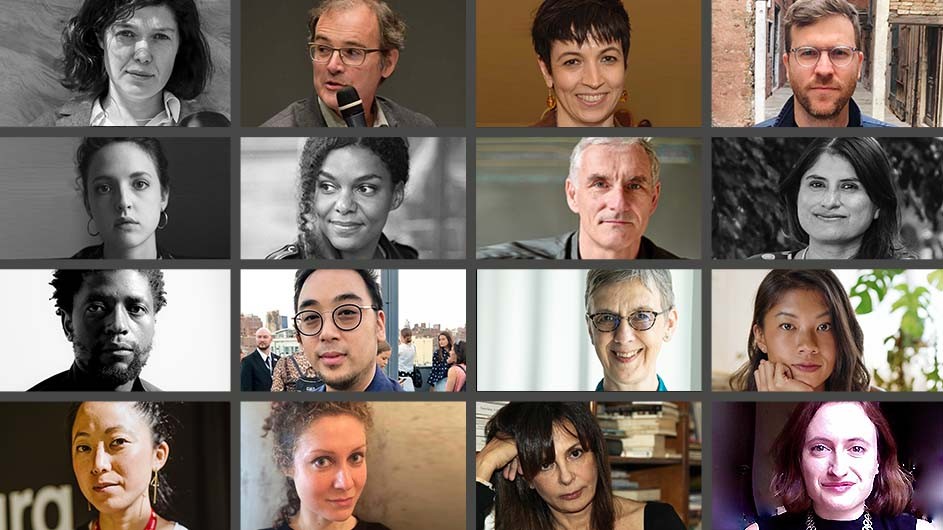
Excitement is brewing at Reid Hall in Paris as Columbia’s Institute for Ideas and Imagination welcomes its fourth class of fellows alongside a $7.5 million grant from the Stavros Niarchos Foundation (SNF). Arriving this month, the 2022-2023 cohort includes writers and translators from Ukraine, Greece, the United Kingdom, and France; filmmakers, composers, and photographers from Peru, the Philippines, and South Africa; as well as Columbia faculty working in law, philology, music, architectural history, and anthropology.
The institute has also partnered with the Harriman Institute, Columbia Global Centers | Paris, and others to launch four additional residencies for Ukrainian writers, journalists, and artists.
The Institute for Ideas and Imagination was founded by Columbia President Lee C. Bollinger to foster fresh ways of thinking about art, scholarship, and knowledge. It has hosted more than 40 fellows since it opened in 2018. During that time, groups of scholars and artists awarded year-long fellowships have come together in Paris to pursue their own work while participating in discussions and collaborations designed to foster artistic and intellectual innovation.

The institute not only connects brilliant young creative talents and early-career researchers with some of the world’s leading scholars, filmmakers, and writers, but also supports short-term visits and talks by Columbia science faculty and hosts graduate and faculty workshops, lectures, and concerts. It has recently been made part of Columbia Global, a new entity that brings together global university initiatives under the leadership of Dr. Wafaa El-Sadr.
SNF was one of the institute’s earliest donors and has been instrumental in its success, providing essential planning and programming support from the outset. With its renewed support of $7.5 million, SNF has taken a giant step toward consolidating and expanding the institute and its operations.
“The Stavros Niarchos Foundation’s gift is transformational. It confirms the Institute for Ideas and Imagination in its core mission of bringing together the worlds of scholarship and the arts, while enabling us to enhance our international impact at a time when we need more than ever to find new ways of communicating ideas that matter,” said Mark Mazower, SNF Director of the Institute and Ira D. Wallach Professor of History.
“This generous support from the Stavros Niarchos Foundation will underwrite what has already become one of the world's outstanding residential fellowship programs, attracting brilliant creative artists from around the world and allowing them to mingle with university faculty,” President Bollinger said.
“SNF believes deeply in the power of collaboration across disciplines, beyond borders, and outside any preconception of how things ‘should’ work,” said SNF Co-President Andreas Dracopoulos. “As this incredible new cohort of fellows will undoubtedly demonstrate, when people who are curious and care deeply about the impact their ideas can have on the world come together, amazing things happen. We are proud to be a part of it.”
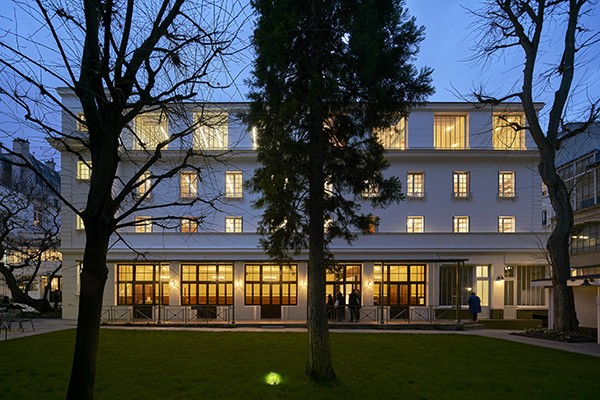
Funding from SNF also established the Stavros Niarchos Foundation Public Humanities Initiative (SNFPHI), a 4-year pilot project that highlights the role humanities can play in enriching public understanding of major contemporary issues. Focused initially on Greece, SNFPHI has implemented public-facing humanities to connect the field of Hellenic Studies with a broad public audience. The initiative aims to activate and amplify some of the most extraordinary, engaged arts projects already at work in Greece, allowing them, through the institute, to enrich the life of Columbia as a whole.
The support from SNF includes an endowment of the institute’s directorship and the Rendez-vous de l’Institut: The Fellows’ Series, as well as additional programmatic support for the creative arts fellowships that lie at the heart of the institute’s mission. Moving forward, the SNF Public Humanities Initiative will become the public-facing wing of the Institute for Ideas and Imagination, allowing more interaction and integration between the two programs and enabling partnerships among institute fellows and communities in need.
2022-23 Fellows
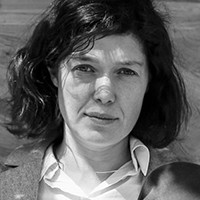
Yevgenia Belorusets, Ukraine, Writer/Visual Artist
A Ukrainian writer and photographer, Yevgenia Belorusets is the co-founder of “Prostory,” a journal for literature, art, and politics, and is a member of the interdisciplinary curatorial group “Hudrada.” Her works move at the intersection of art, literature, journalism, and social activism, between documentation and fiction. Her online Kyiv war diary was followed during the first month of the war around the world and carried daily in Artforum, Isolarii, and other outlets. Her first short story collection, Lucky Breaks, appeared in the United States last spring (New Directions, 2022); the German version won the International Literature Award from the Haus der Kulturen der Welt.
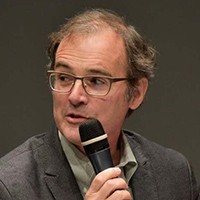
Barry Bergdoll, United States, Columbia University, Architectural History
Barry Bergdoll is Meyer Schapiro Professor of Art History, Columbia University. His broad interests center on modern architectural history, with a particular emphasis on France and Germany since 1750. His interests also include the intersections of architecture and new technologies of representations in the modern period, especially photography and film. He served as Philip Johnson Chief Curator at the Museum of Modern Art, from 2007 to 2013. He has curated exhibitions intended to offer more inclusive visions of subjects from Mies van der Rohe (and his relationship to garden reform and landscape), to the Bauhaus, Henri Labrouste, Le Corbusier, Latin American post-war architecture, and, most recently Frank Lloyd Wright.
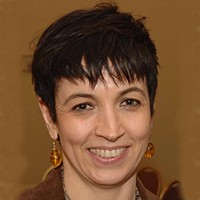
Alessandra Ciucci, Italy, Columbia University, Ethnomusicology
Alessandra Ciucci is an ethnomusicologist and associate professor of music at Columbia University. Her research interests include the music of Morocco, the Maghreb, the Mediterranean, gender and sexuality, sung poetry, popular music of the Arab world, and music and migration. She has published widely on these and other subjects and has won numerous awards, including the 2018 Rome Prize in Modern Italian Studies.
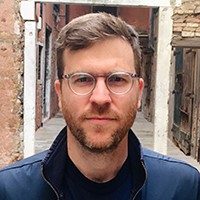
William Dougherty, United States, Columbia University, Composer
After receiving his doctorate from the Department of Music, William Dougherty was an Early Career Fellow at Columbia University where he taught courses in music composition, theory, and electronics. His compositions have been performed internationally by ensembles, including Distractfold Ensemble (Manchester, U.K.), The Sun Ra Arkestra (Philadelphia), and Talea Ensemble (New York), and at festivals such as IRCAM's ManiFeste (2019), musikprotokoll (2018), and Donaueschingen Musiktage (2017). He was the recipient of the 2021 Luciano Berio Prize in Music Composition from the American Academy in Rome.

Isabella Hammad, United Kingdom, Novelist
Isabella Hammad is a British-Palestinian writer whose first novel, The Parisian, published by Grove Atlantic in 2019, won several prizes, and was hailed as a New York Times Notable Book of the year. Her work has appeared in the Paris Review and elsewhere. At the institute, she will be working on her new novel set at the time of the Bandung Conference.
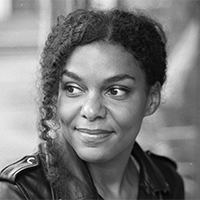
Yala Kisukidi, France, Philosopher
A philosopher, teacher, and public intellectual, Yala Kisukidi is associate professor of philosophy at the Université de Paris 8 Vincennes Saint-Denis. She has published widely on Bergson, questions of Blackness, and Europe's post-colonial relationship with Africa and is curator of the Yango II Biennale of contemporary art, Kinshasa. Her current work on Laetitia Africana involves a mixture of fiction, biography, and theory to reflect on African independence, the role of the European diaspora, and the idea of hope.
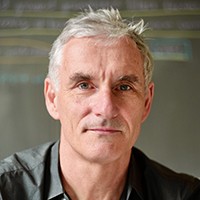
Brian Larkin, United Kingdom, Barnard College, Anthropology
Brian Larkin is the director of graduate studies and a professor of anthropology at Barnard College, Columbia University. His research focuses on the ethnography and history of media in Nigeria. Most broadly, he examines the introduction of media technologies into Nigeria—cinema, radio, digital—and the religious, political, and cultural changes they bring about. He is co-director of the Comparative Media Initiative at Columbia University, co-founder of the University Seminar on Media Theory and History, and a member of the Committee on Global Thought. At the Institute, he will be working on a project exploring the uses of radio and media technologies as a tool of British imperial governance.
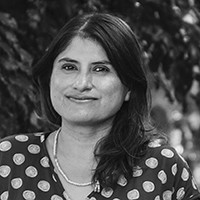
Melina León, Peru, Filmmaker
Melina León is a filmmaker and an MFA graduate of Columbia University. Her first feature, Song Without a Name, premiered at the Cannes Film Festival’s Directors’ Fortnight in 2019 and was the first Peruvian film ever to be shown there. It has gone on to win awards at film festivals in Thessaloniki, Stockholm, and Munich. Interested in the relationship among art, religion, and colonialism, she is working on her second feature film, a contemporary story about a 10-year-old artist with epilepsy who is immersed in the syncretic religious culture of San Blas, a neighborhood in Cusco, Peru.
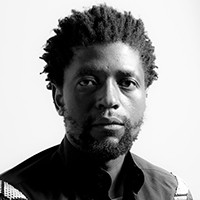
Sabelo Mlangeni, South Africa, Photographer
A South African documentary photographer and visual artist who exhibited “The Royal House of Allure” recently at the Palais de Tokyo in Paris, Sabelo Mlangeni is a graduate of the Market Photo Workshop in Johannesburg. He is best known for his series "Country Girls," which presents an intimate portrait of queer life within the rural areas of Mpumalanga province. His ongoing work—Ngiyobona Phambili (“I will cross the bridge when I get there”)—explores space, time, and intimacy in a reflection on the politics and desire for belonging.

John Duong Phan, United States, Columbia University, Vietnamese Studies
John Phan is assistant professor of Vietnamese humanities in the Department of East Asian Languages and Cultures at Columbia University. He is completing his first book examining Sinitic influences on the formation of the Vietnamese language and is working on the emergence of vernacular literary expression in medieval Vietnam. At the institute, he will work on Decomposing Linguistic Nationalism: Interlinguality and Genre in the Development of a Vietnamese Vernacular Tradition. His broad interests include how issues of interlingual cross-pollination and genre figure into the development of other vernaculars across the globe and throughout history.
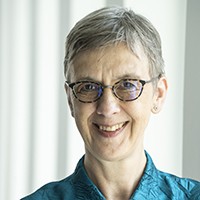
Katharina Pistor, Germany, Columbia University, Comparative Law
Edwin B. Parker Professor of Comparative Law at Columbia University, Katharina Pistor is a leading scholar and writer on corporate governance, money and finance, property rights, and comparative law. Her most recent book, The Code of Capital, was named one of the best books of 2019 by the Financial Times and Business Insider. She has testified before Congress on the lack of regulatory oversight of proposed international cryptocurrencies. As the director of the Center on Global Legal Transformation, Pistor directs work to examine how laws shape global relations and how they, in turn, transform the law.
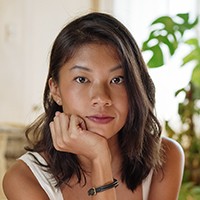
Hannah Reyes Morales, Philippines, Photographer
Hannah Reyes Morales is a Filipina photographer and multimedia journalist whose photography brings historical memory and current events home, by looking at how they shape daily life. Her long term project Living Lullabies explores the role of lullabies in creating safer spaces for children and caregivers in challenging environments globally. Blending photography, audio, animation, and performance from collaborators, the project illuminates critical issues facing women and children through the stories of families’ nighttime rituals. She has been published in The New York Times, National Geographic, and Le Monde, among others. She is a National Geographic Explorer, and was commissioned as the Nobel Peace Prize photographer in 2021.
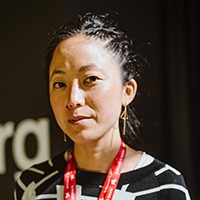
Pauchi Sasaki, Peru, Composer
Pauchi Sasaki is returning to the institute this coming year after her 2019-20 fellowship was truncated by COVID. She is a composer, performer, and improviser who recreates intimate subjective landscapes through electro-acoustic sonorities, influenced by improvisational aesthetics and ethnic musical traditions. Her film scores appear in more than 30 feature and short films. She has received three "Best Original Score" international awards, and the Ibermúsicas Latin American grant for sound composition with new technologies at CMMAS. Her work has been presented at the Tokyo Experimental Festival, Lincoln Center's Mostly Mozart Festival, The Kitchen, Carnegie Hall, Walt Disney Hall, the MET, the Venice Biennale, and the Gran Teatro Nacional del Perú, among other venues.
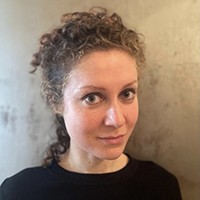
Yasmine Seale, United Kingdom, Translator
Yasmine Seale is a translator from Arabic. Her recent Annotated Arabian Nights was published by Norton to acclaim in the press and has been hailed by the Economist as “quietly momentous.” At the institute, she will be translating the complete works of the pre-Islamic Arabic poet, al-Khansa.

Ersi Sotiropoulos, Greece, Writer
Ersi Sotiropoulos is a poet and novelist who lives in Athens. Her work has been translated into many languages, and she has been awarded the Greek National Book Prize twice, the Book Critics’ Award, and the Athens Academy Prize, among other distinctions.

Eliza Zingesser, United States, Columbia University, Medieval French and Occitan Literature
Eliza Zingesser is a specialist of medieval French and Occitan literature, with a particular focus on animal studies, cultural and linguistic contact, and gender and sexuality. Her first book, Stolen Song: How the Troubadours Became French (Cornell University Press, 2020), argues for the creation of an alternative point of origin for French literary history—a body of faux-archaic Occitanizing songs. At the institute she will work on Lovebirds: Avian Erotic Circuits in Medieval French and Occitan Literature, about the myriad ways in which birds mediate the experience of erotic love in medieval literature.